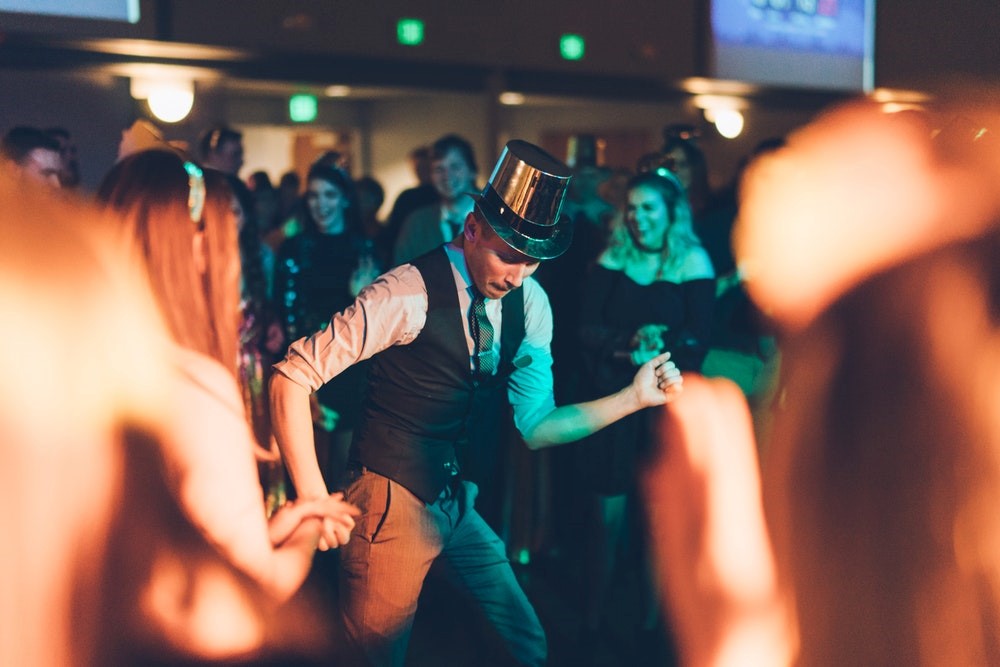
The season to be merry is almost upon us. Here at Howells, the office Christmas party is in the calendar and the employment team will be out in strength with Gemma Bailey, Senior Associate, and Bethan Southcombe, Head of Employment Law, likely to be among the first on the dancefloor.
Regrettably, I will be in Seville sampling the local cuisine and Rioja some 2,203 km from the disco lights and the mistletoe. Seville (at the time of writing) is forecast to be 20 degrees on the day of the party, not bad for December.
However, whilst Howells festivities are rather genteel and good-natured occasions, work parties do carry the risks associated with excessive alcohol use in large groups. Guards can drop, and temperatures can rise.
The case of Bellman v Northampton Recruitment Limited is a stark reminder of the pitfalls of office Christmas parties and the aftermath; a gathering after the official event ending with tragic consequences and an employer being found vicariously liable for the actions of one its employees.
What Happened in the Case of Bellman v Northampton Recruitment Limited?
In December 2011, Northampton Recruitment Limited (‘NR’) held a Christmas party for its office staff and their partners at the Collingtree Golf Club in Northampton. All members of staff were invited. The party was attended by ten of the eleven members of staff and twenty-four people attended in total, including other invited guests. One of the directors, Mr Major, arranged for NR to pay for the food and drink and for taxis and accommodation for most of the guests at the nearby Hilton Hotel.

At around midnight, as the party was drawing to a close, taxis collected all those who wanted to go to the Hilton Hotel for further drinks. This was not a pre-planned extension of the party at the golf club. However, between thirteen and fifteen of the original twenty-four party attendees, including five or six of NR's eleven staff, took up the offer including Mr Bellman and his partner.
They arrived at the hotel between 12.30 and 1am. Most, but not all of them were staying at the hotel overnight at NR's expense. Mr Bellman and his partner, Ms Thomas, went to the hotel for further drinks but they were not staying there.
At the hotel, the majority of the drinks were paid for by NR and at around 2am, the conversation amongst the remaining employees turned to work, including NR's plans for the following year. A work related drunken argument ensued. Mr Major, who was by now significantly inebriated, lost his temper. He responded by attacking Mr Bellman. Mr Bellman sustained a fracture to his skull, subdural and subarachnoid haemorrhages and a left frontal lobe contusion. He has suffered traumatic brain damage.
What Verdict Was Held?
Mr Bellman’s claim that Northampton Recruitment Limited was vicariously liable for the actions of one of its employees was dismissed in the High Court. The judge concluded that there was insufficient connection between the position in which Mr Major was employed and the assault to make it right for Northampton Recruitment Limited to be held liable.
The case was appealed and unanimously allowed by the Court of Appeal. Whilst the assault had been committed after, and not during, an organised work social event the court found that at the time of the incident Mr Major was wearing ‘his metaphorical managing director's hat’ and delivering ‘a lecture to his subordinates’.
The attack arose out of a misuse of the position entrusted to Mr Major as managing director who was asserting his authority and seniority. Consideration was given to the fact that whilst acknowledging there was a temporal gap between events and attendance at the later drinking session was voluntary, the drinks occurred on the same evening as the work event which had been paid for and orchestrated by Mr Major on behalf of NR.
Mr Major had already been fulfilling his managerial duties for a large part of the evening. Having orchestrated the party, he organised and paid for the taxis to the hotel and continued to provide drinks which were to be paid for by NR. Mr Major was found to be present in his capacity as managing director of NR.
What Can Be Learnt from This Case?
Whilst an unusual case, it highlights that vicarious liability may arise at any time even - if an employee might be considered to be off duty at the time.
The test for vicarious liability, namely whether the conduct is so closely connected with the employment that it would be fair and just to hold the employers vicariously liable, will depend heavily on the facts. Among the relevant consideration will be whether the employee was at work, on duty, and the proximity in time with any work-related activities, in deciding if there was a sufficiently close connection with what was authorised or expected of the employee.
If you, your employer or an employee has been involved in an altercation like this, or would simply like to learn more about this area of law, please do get in touch with me or our team of solicitors here at Howells.
Alternatively, please take a look at our post ‘Tis The Season to be Merry – But Don’t Let it Cost You!’ for tips from our team on how to have a successful Christmas party this winter.

